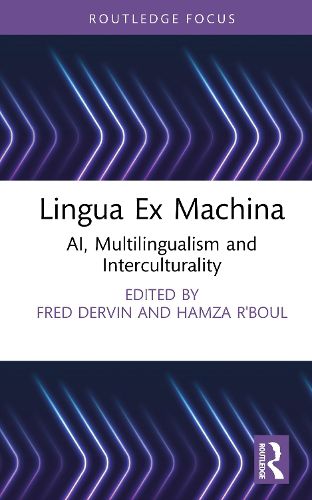Readings Newsletter
Become a Readings Member to make your shopping experience even easier.
Sign in or sign up for free!
You’re not far away from qualifying for FREE standard shipping within Australia
You’ve qualified for FREE standard shipping within Australia
The cart is loading…






Lingua Ex Machina: AI, Multilingualism and Interculturality explores the evolving role of AI in shaping language, communication and intercultural encounters.
The term 'Lingua Ex Machina' (literally 'language from the machine') encapsulates the paradox of AI acting as both a tool for bridging linguistic and intercultural divides, and a potential amplifier of inequalities. This edited volume brings together critical perspectives on the impact of AI on language diversity, translation, education and the production and dissemination of knowledge. From questioning whether AI is more than a sophisticated 'parrot' to examining its effects on minor languages and intercultural education communication and research, the contributors highlight both the promises and drawbacks of machine-mediated communication. They also urge readers to reflect on the future of language, advocating for a reflexive approach to technology that prioritises agency, diversity, and critical engagement.
This interdisciplinary book is an essential read for students, scholars, and practitioners interested in multilingualism, intercultural communication education, and the implications of AI.
$9.00 standard shipping within Australia
FREE standard shipping within Australia for orders over $100.00
Express & International shipping calculated at checkout
Stock availability can be subject to change without notice. We recommend calling the shop or contacting our online team to check availability of low stock items. Please see our Shopping Online page for more details.
Lingua Ex Machina: AI, Multilingualism and Interculturality explores the evolving role of AI in shaping language, communication and intercultural encounters.
The term 'Lingua Ex Machina' (literally 'language from the machine') encapsulates the paradox of AI acting as both a tool for bridging linguistic and intercultural divides, and a potential amplifier of inequalities. This edited volume brings together critical perspectives on the impact of AI on language diversity, translation, education and the production and dissemination of knowledge. From questioning whether AI is more than a sophisticated 'parrot' to examining its effects on minor languages and intercultural education communication and research, the contributors highlight both the promises and drawbacks of machine-mediated communication. They also urge readers to reflect on the future of language, advocating for a reflexive approach to technology that prioritises agency, diversity, and critical engagement.
This interdisciplinary book is an essential read for students, scholars, and practitioners interested in multilingualism, intercultural communication education, and the implications of AI.